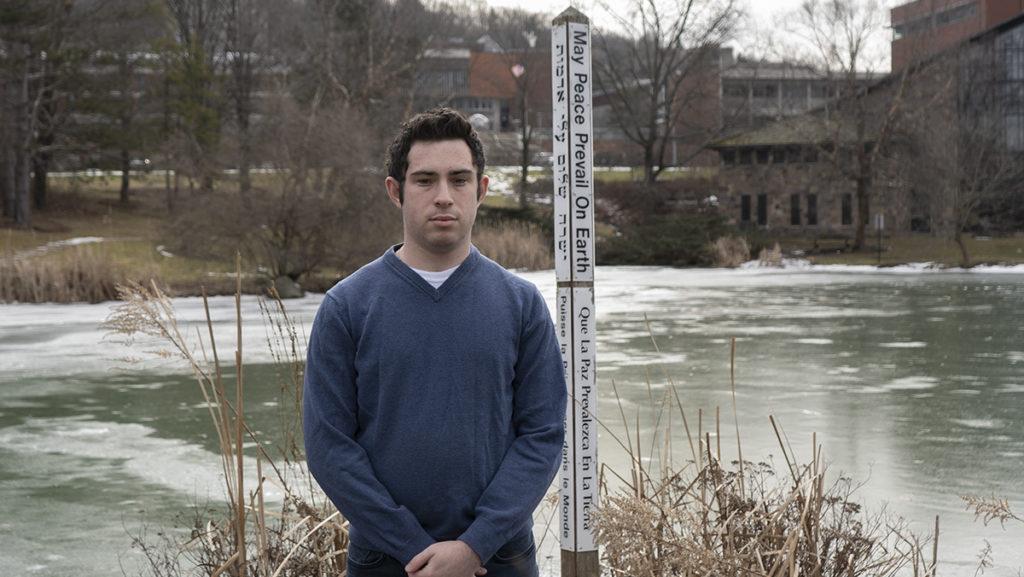Editor’s Note: This is a guest commentary. The opinions do not necessarily reflect the views of the editorial board.
A recent commentary in The Ithacan sparked my interest in the language we use to describe the Jewish State of Israel. In this commentary, I will discuss certain phrases commonly used in the progressive movement that are actually rooted in antisemitism. I aim to provide a balanced perspective by incorporating personal context to the experiences of Jews and Israelis, so that we can have a more informed conversation on this complex topic.
Despite its well-intended use by many, the phrase “from the river to the sea, Palestine will be free” carries with it a controversial history that may be perceived as offensive to Jewish people. To me and my Israeli friends and family, often when we hear this chant, we don’t hear peace for Palestinians but instead war and cleansing of the Jews in Israel.
The slogan was first used in 1948 as a call to violence against Jews by the founder of the Muslim Brotherhood, Hassan al-Banna. The sentiment was later echoed by Iraqi and Syrian officials and was adopted by Hamas, a terrorist organization that wants to get rid of “the filth of Jews.” The phrase has become a buzzword by progressive Americans who want to show support for Palestinians but may not understand the true meaning of the words or the violence it implies.
Another myth that I hear all the time is that Israel is an apartheid state. After visiting the country this year and speaking directly with Palestinians from Jerusalem and the West Bank, I feel this is a misuse of the word. Apartheid refers to the discriminatory laws in South Africa that restricted where one could live, vote and work based solely on skin color. While Israel’s civil society remains a work in progress — like the societies in our own democracy and others — the country’s Arab population makes up 20% of the citizenry and holds rights to vote, run for office, freely practice religion and express criticism of the government, as do their neighbors of every faith and background.
When discussing this subject and seeking a middle ground, it is important to understand Israel has made numerous attempts at peace throughout history. The Partition Plan, created in 1947 and approved by the United Nations, proposed a two-state solution and although Jews approved it, Palestinian leaders did not. In 2000, former President Bill Clinton brought the two sides to discuss a new plan that Yasir Arafat, the chairman of the Palestine Liberation Organization, rejected. Once again in 2008, another plan was put out by Israel that would have Israel ceding 94% of the West Bank but was unfortunately rejected. More recently in 2014, another plan was put forward, but was canceled by Israel when Arab leaders created a pact with Hamas. Israel is by far no perfect country, but it is evident it just wants peace.
The commentary in The Ithacan claimed that Israel’s army attacks children specifically, which misrepresents a tragic cycle of violence. When Hamas fires rockets at Israeli civilians, the Israeli Defense Force tries to reduce casualties by warning civilians to evacuate targeted military buildings. I believe any civilian killed in war is a tragedy that Israel makes every effort to avoid while it becomes harder to do so when Hamas places rocket launchers in hospitals and schools.
The Palestinian people raise awareness of the discrimination they face, including incidents on our campus that require attention. In support, I acknowledge that many issues brought up are similar to the problems faced by Jewish people in the diaspora on a daily basis. This is a problem that we all need to work on together. I, too, am no longer surprised to see an attack at a synagogue or rockets fired into a country I call home, nor am I surprised by conflations of my Jewish identity with a political affiliation. These events make me feel anything between frustrated and misunderstood all the way to fearful and exhausted.
The truth is, neither Jewish Americans, like me, nor Palestinians get a choice but to be both personally tied to the conflict and receive microaggressions around perceptions of who “we” are in relation to it. When I tell someone I am Jewish, I often get asked what my thoughts are on the Israeli-Palestinian conflict even though I have not mentioned it at all. And many times when I have told stories about my visits to Israel, I was met with taunts like “You went to a place that does not exist.”
It’s important to understand that being Jewish or a Zionist doesn’t mean endorsing every action taken by the Israeli government. Just like how I don’t agree with every decision made by the U.S. government, but I can still take pride in being American. When I tell people I am proud to be an American, I do not get asked, “So you agree with abortion bans?” The moment I mention support of Israel, I get asked if I support every policy made by the Israeli government. I feel as if there is a double standard for the only Jewish State. I personally am happy to engage in discussion about Israel, but plenty of Jews are not and should not have to answer questions about it because of their religion.
Failing to speak out against discrimination against a minority group is not enough. As a college community, we must be ready to hear from different sides. I fear that if we continue to erase the history of many people’s ties to this land, the cycle of demonization, lack of humanity and violence will only continue.














